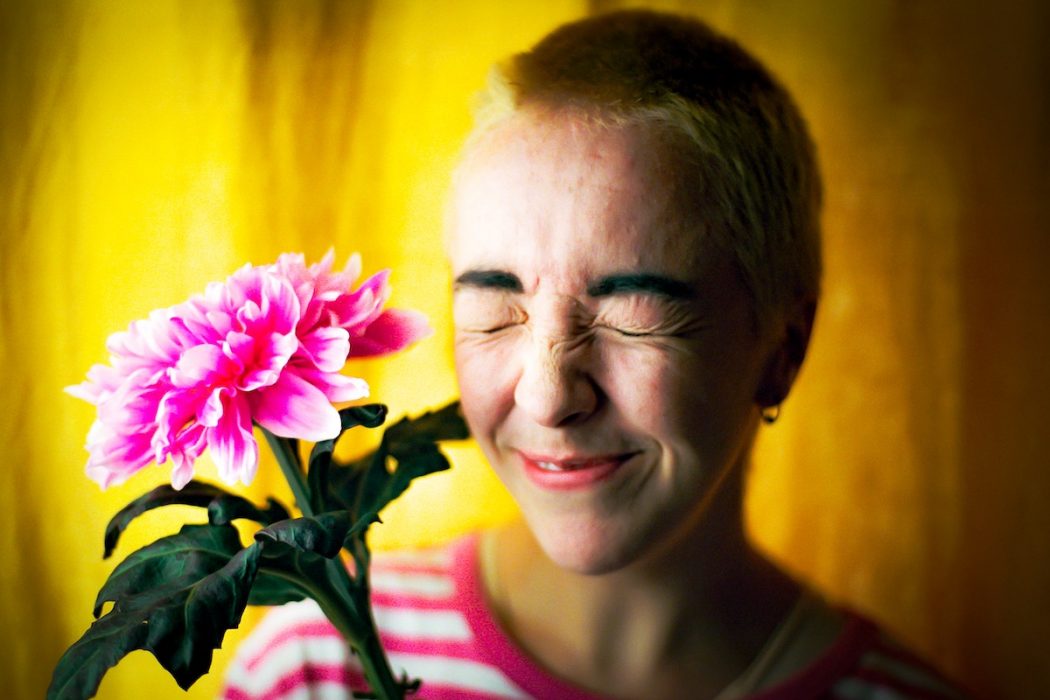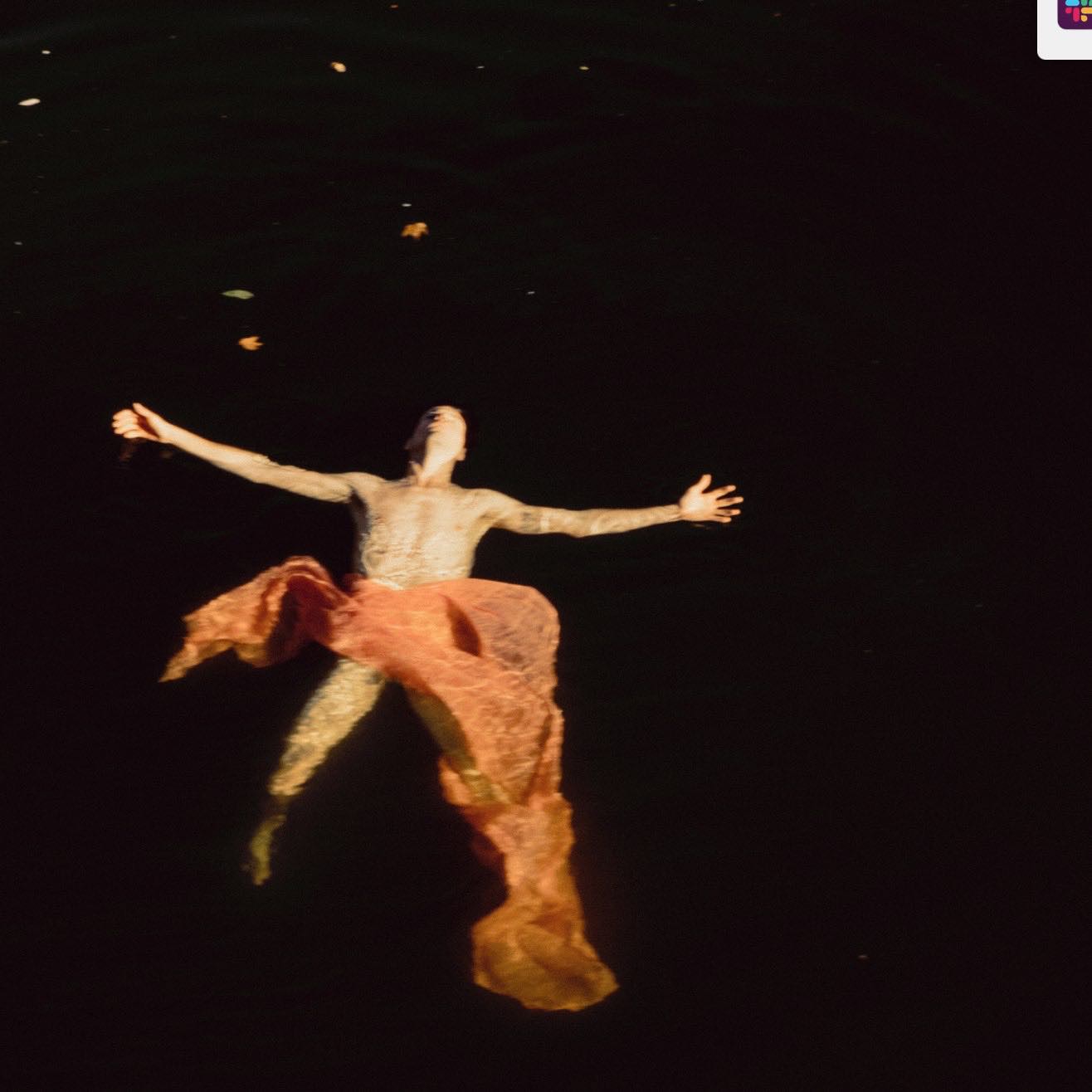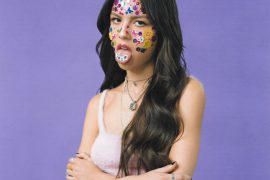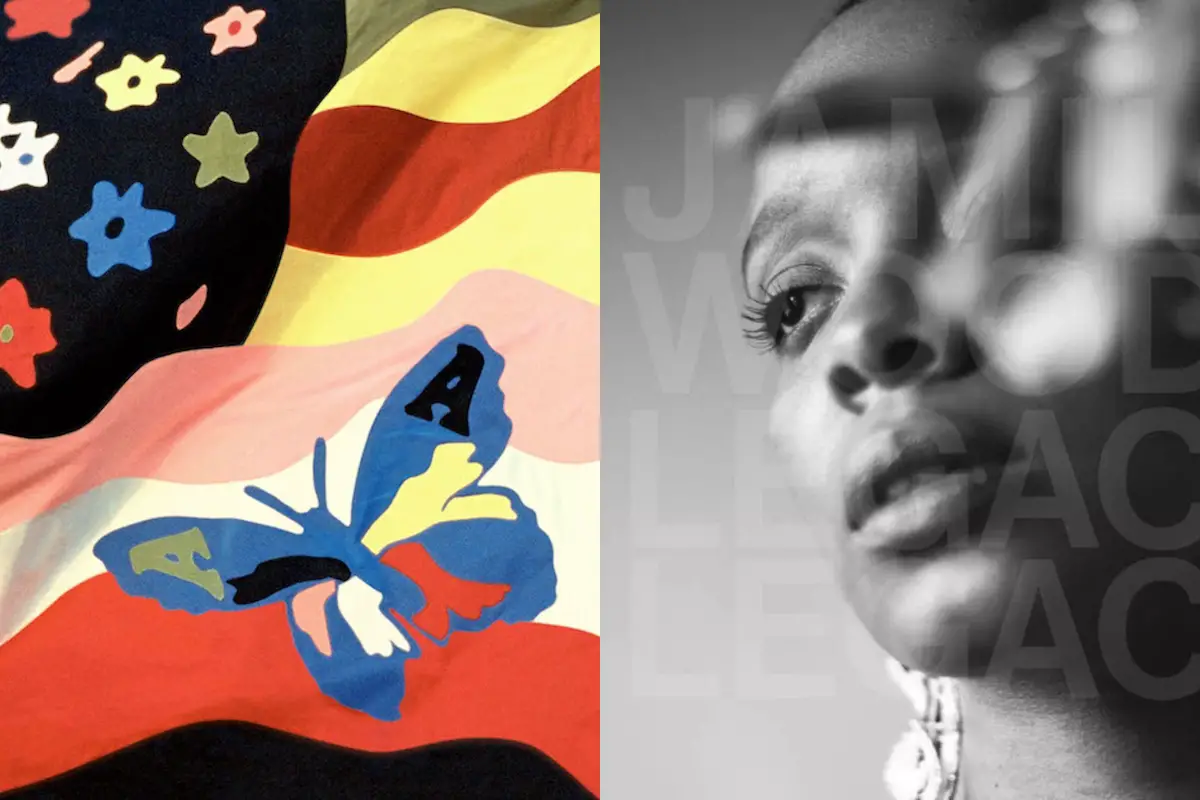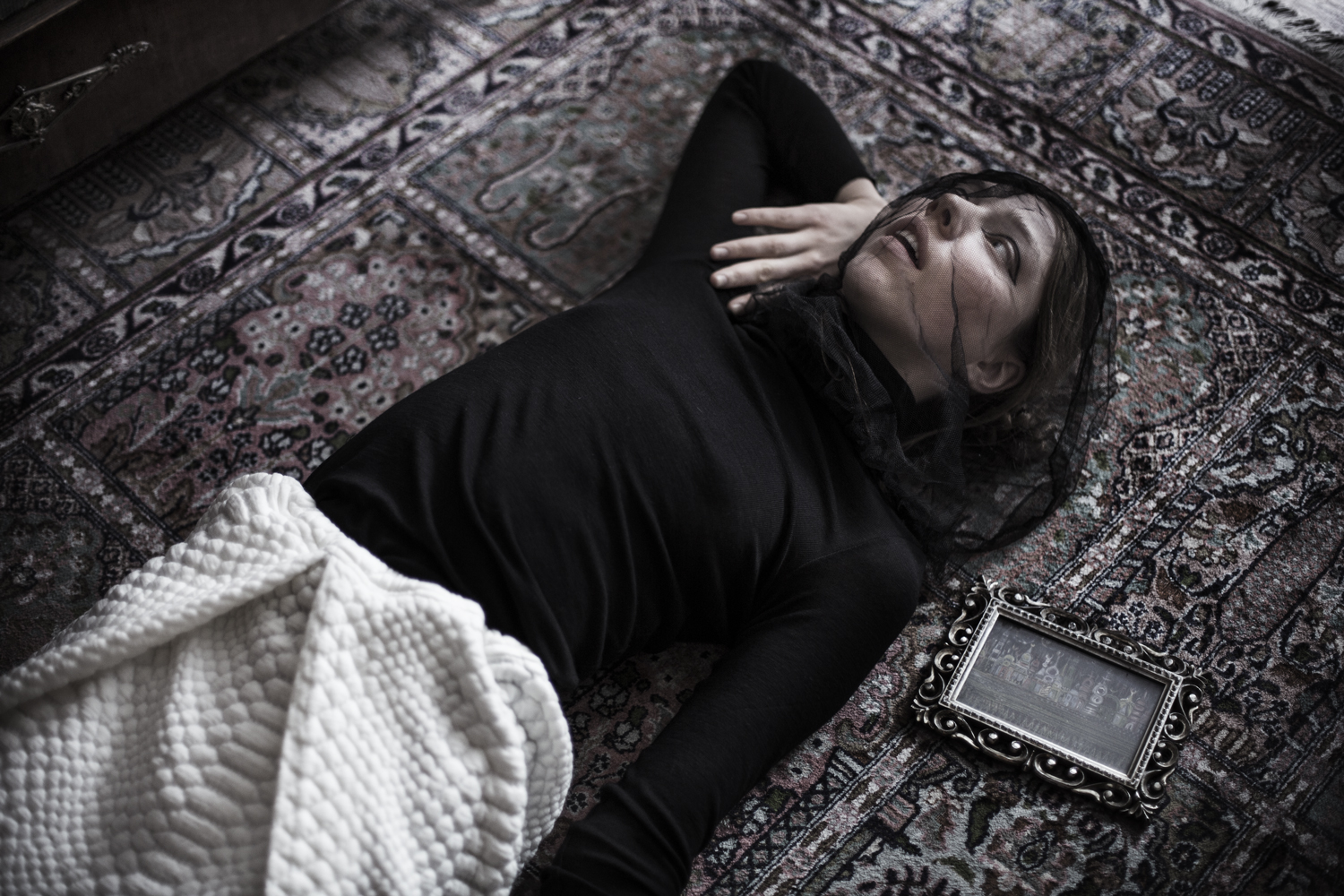This year, artist-to-watch Rosehip Teahouse’s Faye Rogers came out as non-binary. This essay, written by them, is about grappling with gender, mental health, and music. Rosehip Teahouse’s sophomore EP ‘Fine’ is out now via Big Indie Records.
written by Faye Rogers
— —
trigger warning for gender dysphoria and eating disorders
Stream: ‘Fine’ EP – Rosehip Teahouse
My name is Faye Rogers. I’m from the band Rosehip Teahouse and finally, I can proudly tell you that I’m non-binary.
It’s been a long ol’ journey of self acceptance and I finally felt comfortable enough this year to fully accept who I am and take the leap to ask others to see me in the way I see myself.
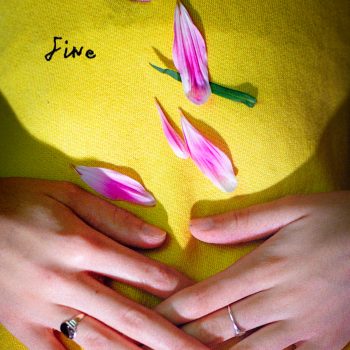
Music for me has always been a coping mechanism. I was lucky enough to receive music lessons from a young age, first piano, then saxophone with the support from my lovely parents (thank you!!). However, at age 14 I stole my brother’s nylon guitar from his room and started writing for myself. Instantly there was an outpouring of emotions that I hadn’t fully realised I was trapping inside. Secrecy and bottling up of emotions and experiences was something that had become fully entrenched in the way I lived my life. I developed anorexia nervosa at around age 10, and this is something that I’ve lived with and tried to recover from ever since. I felt helpless in the world for a number of reasons, and my eating disorder gave me a very unhealthy direction in a life I didn’t understand how to live.
There were many reasons that I developed anorexia, and I won’t bore you with the details of all of it, but looking back now, I realise that part of this hatred of my size and shape was due to my unhappiness in being labeled a ‘girl’ or a ‘woman’. Growing up, my heroes were never really women. I think I began to find myself during my mid-teens, as many people do, and I began to dress myself in outlandish shirts that mirrored a young Morrissey (embarrassing now, I know), or trawling charity shops for suit jackets and waistcoats to emulate Duckie Dale in ‘Pretty in Pink’. I cut my hair short for the first time at age 12. I was never ‘girly’ and I didn’t relate to anyone else who was. I didn’t fit into the confines of the boxes that we gender everything with. I still don’t. And sadly, as a teenager I had never heard the terms non-binary or genderqueer. So as many people do, I felt alienated, like I didn’t belong or fit in anywhere in the world and used this lost energy to hate myself instead.
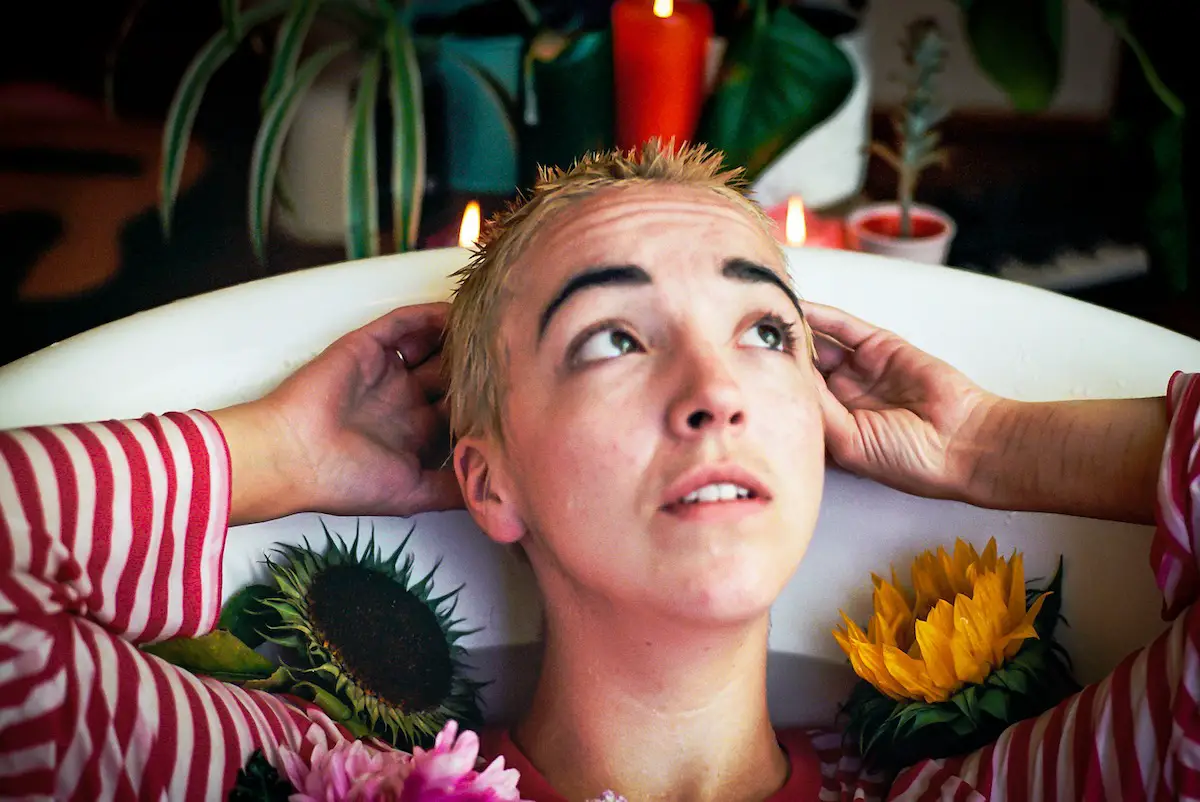

I’ve spent a long time in therapy for my eating disorder, and I’m so hugely grateful that I’ve been able to access services that have supported me and helped me on the quest as I know so many people aren’t able to get the help that they so desperately need and deserve. But of course, eating disorder treatment is hugely centred around weight gain. As I began to achieve this goal, my body became more and more traditionally ‘feminine’ and this for me was quite unbearable. I found myself slipping backwards in my recovery to hold onto my more genderless figure. I think that there is a pressure on non-binary people to present as androgynous. I’m fortunate to fit into this stereotype, so I may not receive the same stigma that others do who decide to present in whatever way they feel is best (as they should!!!). For me, gaining curves, hips, boobs felt so uncomfortable. I felt like an alien in my own body and the only way out of that unease was the temptation to slip back into my disordered eating.
Thankfully, I have reached a point in my life where I have a much healthier relationship with food and my body. It’s still really bloody hard, but I can look at myself and be grateful that I exist and that I’m not trapped in the same cycle of hatred that the eating disorder perpetuated. It sounds like a huge cliche, but I think that my recovery in this area gave me a newfound energy and desire to live life fully and authentically. Eating disorders make everything grey and numb. The colour is back in the world for me now, and I realised that I was still hiding.
Coming out as non-binary this year has been one of the best, most validating decisions I have ever made. I feel so inspired by all the beautifully queer and trans people that live their lives proudly and loudly. And I realised to be authentically myself, I needed to join them. I know that I don’t have the biggest platform in the world, but if someone struggling with their gender identity can see someone else in the music world coming out and showing that it’s okay to be yourself, then it’s worth being in this new and vulnerable place. I’m unbelievably lucky to be in a band with people who see me and accept me for who I am and who have supported me in my coming out.
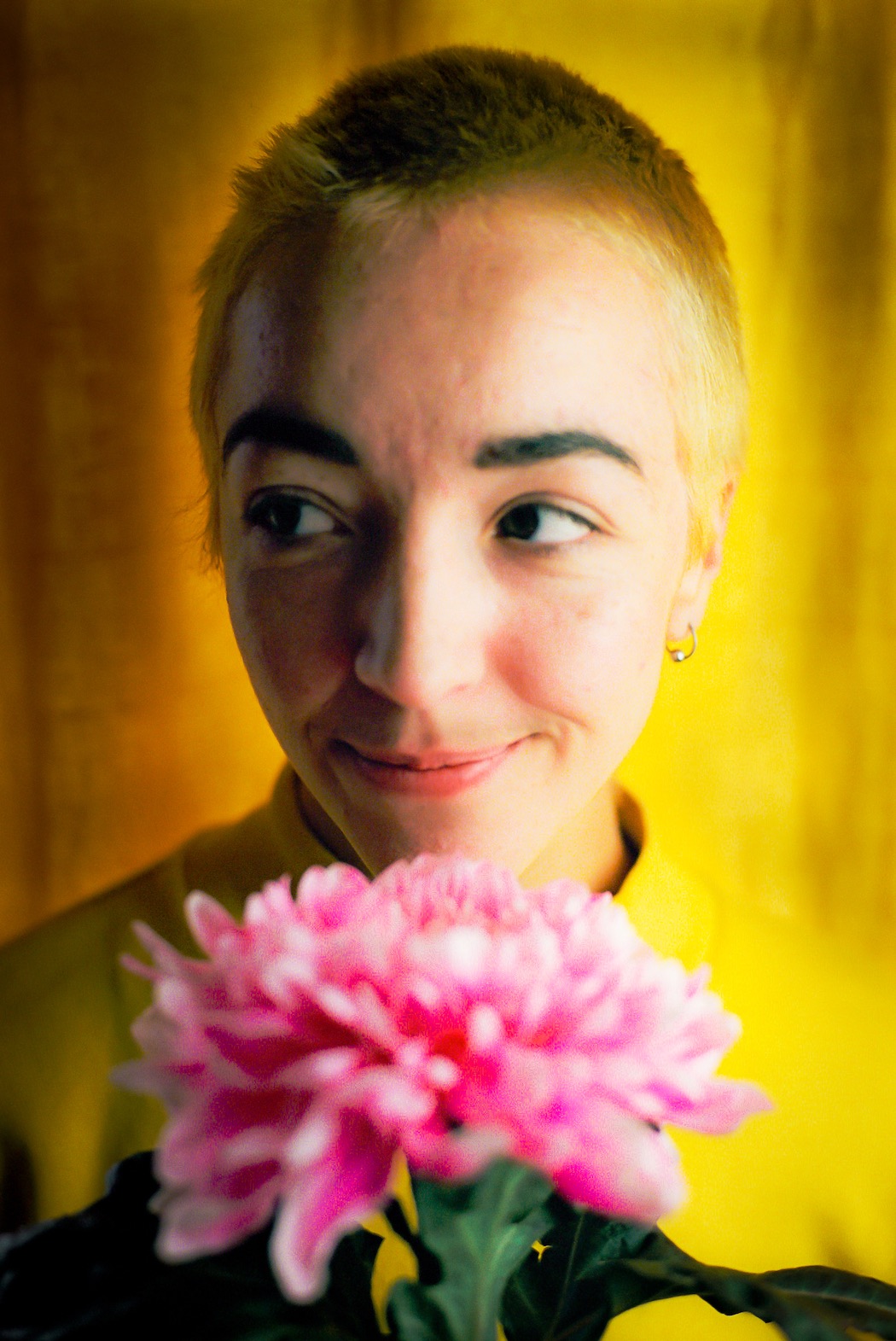
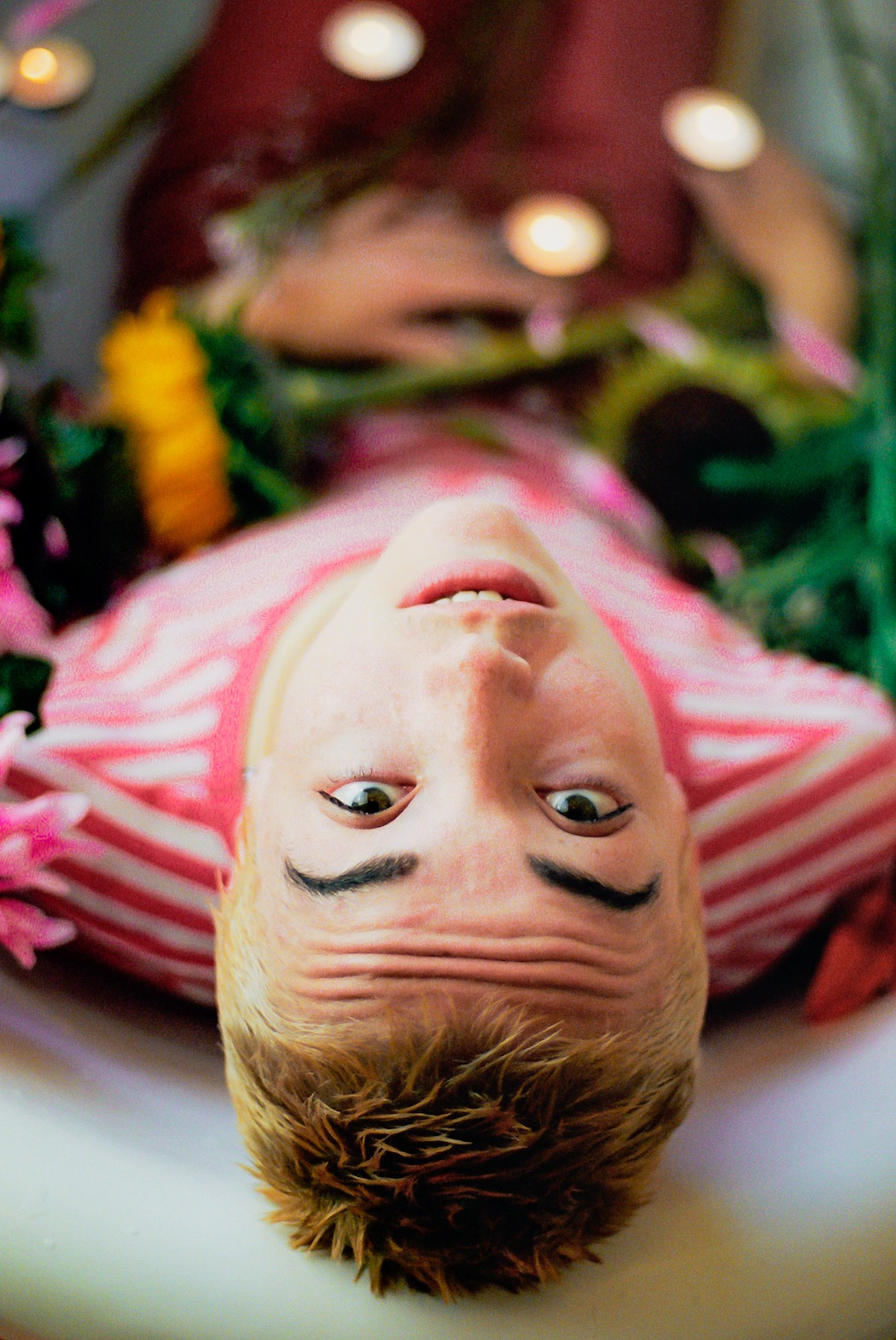
I think one of the most difficult things being a non-binary musician now is trying to claw my way out of the classic ‘female-fronted band’ box (which by the way, is not a genre).
I do not play ‘female-fronted’ music, I play indie pop. I have a soft voice, which has been pointed out to me many times over the years at shows where I have been told I ‘don’t have a strong enough voice to play in a band’ by various soundmen and techs. My music is often seen as ‘sweet’ and ‘twee’, terms that don’t seem to be so easily given to male musicians. I’m still misgendered often, and I understand that this is a process that will likely take some time. But the more people ask about pronouns in everyday conversations, the better. I’m still unsure how to solve these issues, it’s early days for me in this new realm, but I hope to join the new army of musicians who don’t want to stand for this anymore. Trans people in the music industry aren’t equal, not even close.
Women in the music industry aren’t equal. They’re spoken over, patronised, ridiculed. It seems ridiculous that this is still happening. And the more it continues to happen, the harder it is for young people to enter the music industry. It’s hard enough accepting yourself as it is, without then putting yourself publicly on a stage in an industry that will not treat you fairly. There are so so so so many incredible trans musicians, female musicians, queer musicians and I plan to help to boost these voices in the music industry, not just on ‘LGBTQ+ friendly’ nights, but everywhere, where they belong.
It’s going to be a long journey, but as I said before, I am no longer willing to live my life as anything less than my authentic, genderless self and I hope to support others in doing the same.
P.S, recovery and self acceptance is possible. It’s a ridiculously hard journey but you will get there. Look after yourself, nurture your ideas and find who you are. I just want to add some numbers here that may help if you’re struggling with any of these issues. You’re never alone in this world, even when it really, truly feels like you are.
BEAT helpline (for eating disorders): 0808 801 0677
LGBT Foundation Helpline: 0345 3 30 30 30
Mindline Trans+: 0300 330 5468
Switchboard LGBT Helpline: 0300 330 0630
Music Minds Matter: 0808 802 8008
— —
Faye Rogers is a founding member and primary vocalist and songwriter for Welsh indie pop band Rosehip Teahouse.
— — — —

Connect to Rosehip Teahouse on
Facebook, Twitter, Instagram
Discover new music on Atwood Magazine
? © Adam Whitmore
Fine
an EP by Rosehip Teahouse

